
N-acetyl cysteine (NAC) is a highly stabilized supplement form of cysteine essential for making the powerful antioxidant glutathione. NAC’s primary role and value is in its function in antioxidant production. Sufficient quantities of the amino acid cysteine and NAC, is important for a variety of health reasons, besides replenishing the most crucial antioxidant in our body, glutathione, of which two other amino acids are involved in glutathione production (glutamine and glycine). Collectively, these amino acids also assist with brain health, chronic respiratory conditions and fertility. Because glutathione is key to detoxification, it prevents and diminishes kidney and liver damage.1, 2
Autism
Adequate amounts of glutathione are imperative for neutralizing free radicals that can damage cells and tissues in your body. Know that research shows many children who acquire the symptoms of Autism, are born with 50% less glutathione compared to healthy children. Oxidative stress damages their young developing brains. Free radicals are squashed by glutathione and other antioxidants.
Immune
Realizing that antioxidants protect cellular damage, NAC is also essential for immune health and promotes longevity. Research studies continue to show that when there is a drop in our immune system, glutathione levels decline in alarming amounts. We must have adequate reserves of glutathione in our liver (which is our second phase of detoxification). Without sufficient levels of glutathione the cells in our body are left open to attack from unstable free radicals. Our bodies are bombarded by millions of toxins and airborne substances daily – we need protection. 3
How it Works
Briefly, upon recognition of foreign invaders, NAC signals glutathione to the sight of the threat and after a short interaction, these problematic free radicals are accompanied to the liver to be excreted from the body.
Respiratory
It should come as no surprise that supplementing with NAC will have a strong positive effect on the respiratory system. Because NAC has a potent mucolytic (mucus dissolving) agents, it is regularly recommended to smokers and those exposed to second-hand smoke as well as people with chronic respiratory problems like pneumonia and bronchitis.
By glutathione being influenced by NAC, levels of glutathione are being raised in the lungs along with a reduction in inflammation in the bronchial tubes and lung tissue. Therefore NAC has improved the symptoms of people with chronic obstructive pulmonary disease (COPD), lung deterioration and exacerbations and chronic bronchitis. In light of NAC relieving conditions like COPD and bronchitis, NAC could help improve other lung and respiratory tract conditions such as asthma and cystic fibrosis. 4, 5, 5a
Cancer Prevention
By reducing cell oxidation and abnormal cell growth caused by free radicals, an increasing number of researchers put forward that NAC shows great promise in the prevention of some forms of cancer. Good news for smokers and tobacco chewers for they stand to benefit the most, as NAC has shown to stave off the early signs of leukoplakia.
Addictions
Due to NAC’s strong antioxidant properties and ability to purge the body of dangerous toxins, it has shown to be effective in treating acetaminophen and alcohol poisoning. A growing number of consumers swear by NAC’s ability to help them control their alcoholism and other chemical addictions.
Withdrawal symptoms and cravings were both decreased in patients suffering with addiction to cocaine, marijuana and nicotine. It also helped prevent relapse in the cocaine patients. 6,7,8,9
In actual fact, physicians regularly administer intravenous (IV) NAC to people with an acetaminophen overdose, to prevent or reduce kidney and liver damage. 9
Depressive Disorders
NAC is demonstrating positive benefits for those who suffer with depression, bipolar, schizophrenia and OCD. Glutamate is the most important neurotransmitter in our brain and NAC helps regulate levels of glutamate. 10,11,12
Similarly, animal studies demonstrated NAC to also decrease negative symptoms of schizophrenia in the way of apathy, reduced attention spans and social withdrawal. 13
Likewise, an animal study implied that NAC may minimize negative effects of schizophrenia, such as social withdrawal, apathy and reduced attention spans 13
Protects Brain Function
NAC shines in the area of brain function by protecting cells from deterioration that generate the neurotransmitter dopamine. Because of NAC’s strong antioxidant capabilities, tremors have improved in Parkinson’s patients as well as dopamine function. 14
Also, other brain and memory problems like Alzheimer’s disease, and a broad range of learning problems; NAC shows great promise of benefit in these areas, since it helps regulate glutamate levels and reestablishes and enhances glutathione. 14
Heart Disease
We are now well familiar with NAC’s ability to reduce oxidative cell damage, for this reason it is suggested for reducing heart disease by lowering oxidative tissue damage in the heart. 15,16
NAC also increases nitric oxide production which assists in vein dilation while also improving blood flow. Overall, NAC increases blood transit time back to the heart which in and of itself, reduces one’s risk of heart attack.
Enhance Your Body to Make NAC
Supplemental Dosage
There actually isn’t any specific dietary recommendation for cysteine, because our body’s produce small amounts.
However, in order for our body to make the amino acid cysteine, it requires adequate amounts of folate, vitamin B6 and vitamin B12. These vitamins can be found in beans, lentils, spinach, bananas, tuna and salmon.
Even though the majority of protein rich foods, such as chicken, turkey, yogurt, cheese, eggs, sunflower seeds and legumes contain cysteine, you have the option of supplementing with NAC to increase your cysteine levels.
Dosage: NAC is not well absorbed in supplement form, therefore as an oral supplement the suggested dosage is 600 -1,800 mg of NAC. 17,18
Reference
- https://www.ncbi.nlm.nih.gov/pubmed/24835770
Free Radic Biol Med. 2014 Aug;73:127-35. doi: 10.1016/j.freeradbiomed.2014.05.004. Epub 2014 May 15. S-linolenoyl glutathione intake extends life-span and stress resistance via Sir-2.1 upregulation in Caenorhabditis elegans. Cascella R1, Evangelisti E1, Zampagni M1, Becatti M1, D’Adamio G2, Goti A2, Liguri G1, Fiorillo C1, Cecchi C3.
- https://www.ncbi.nlm.nih.gov/pubmed/9727078
Altern Med Rev. 1998 Aug;3(4):262-70. Cysteine metabolism and metal toxicity. Quig D1.
- https://www.ncbi.nlm.nih.gov/pubmed/11115795
Proc Nutr Soc. 2000 Nov;59(4):595-600. Glutathione and immune function. Dröge W1, Breitkreutz R.
- https://www.tandfonline.com/doi/abs/10.3109/15412555.2013.858315
Effect of High/Low Dose N-Acetylcysteine on Chronic Obstructive Pulmonary Disease: A Systematic Review and Meta-analysis. Yanfei Shen,Wanru Cai,Shu Lei &Zhongheng Zhang
- https://www.ncbi.nlm.nih.gov/pubmed/10743980
Clin Ther. 2000 Feb;22(2):209-21. Efficacy of oral long-term N-acetylcysteine in chronic bronchopulmonary disease: a meta-analysis of published double-blind, placebo-controlled clinical trials. Grandjean EM1, Berthet P, Ruffmann R, Leuenberger P.
5a. https://www.ncbi.nlm.nih.gov/pubmed/27117852
J Nutr Sci Vitaminol (Tokyo). 2016;62(1):54-61. doi: 10.3177/jnsv.62.54.
Efficacy of Ascorbic Acid (Vitamin C) and/N-Acetylcysteine (NAC) Supplementation on Nutritional and Antioxidant Status of Male Chronic Obstructive Pulmonary Disease (COPD) Patients. Pirabbasi E1, Shahar S, Manaf ZA, Rajab NF, Manap RA.
- https://www.ncbi.nlm.nih.gov/pubmed/19581567
Arch Gen Psychiatry. 2009 Jul;66(7):756-63. doi: 10.1001/archgenpsychiatry.2009.60.
N-acetylcysteine, a glutamate modulator, in the treatment of trichotillomania: a double-blind, placebo-controlled study. Grant JE1, Odlaug BL, Kim SW.
- https://www.nature.com/articles/npp201266
Original Article. Published: 02 May 2012. N-Acetylcysteine Normalizes Glutamate Levels in Cocaine-Dependent Patients: A Randomized Crossover Magnetic Resonance Spectroscopy Study. Lianne Schmaal, Dick J Veltman, Aart Nederveen, Wim van den Brink & Anna E Goudriaan
- https://www.ncbi.nlm.nih.gov/pmc/articles/PMC2826714/
The American journal on addictions / American Academy of Psychiatrists in Alcoholism and Addictions. Author Manuscript. HHS Public Access. N-Acetylcysteine (NAC) in Young Marijuana Users: An Open-Label Pilot Study. Kevin M. Gray, M.D., Noreen L. Watson, B.S., and Steven D. LaRowe, Ph.D.
- https://link.springer.com/article/10.1007%2Fs40263-014-0142-x
CNS Drugs February 2014, Volume 28, Issue 2, pp 95–106| Cite as Potential Role of N-Acetylcysteine in the Management of Substance Use Disorders; Authors and affiliations
Erin A. McClureEmail authorCassandra D. GipsonRobert J. MalcolmPeter W. KalivasKevin M. Gray
- https://www.ncbi.nlm.nih.gov/pubmed/26931055
J Clin Pharm Ther. 2016 Apr;41(2):214-9. doi: 10.1111/jcpt.12370. Epub 2016 Mar 2.
N-acetylcysteine augmentation therapy for moderate-to-severe obsessive-compulsive disorder: randomized, double-blind, placebo-controlled trial. Paydary K1, Akamaloo A1, Ahmadipour A1, Pishgar F1, Emamzadehfard S1, Akhondzadeh S1.
- https://www.ncbi.nlm.nih.gov/books/NBK10807/
Neuroscience. 2nd edition. Show details Search term Glutamate
- https://www.ncbi.nlm.nih.gov/pubmed/27137430
J Clin Psychiatry. 2016 Apr;77(4):e457-66. doi: 10.4088/JCP.15r09984. N-Acetylcysteine in depressive symptoms and functionality: a systematic review and meta-analysis. Fernandes BS1,2, Dean OM, Dodd S, Malhi GS, Berk M.
- https://www.ncbi.nlm.nih.gov/pubmed/27163208
Transl Psychiatry. 2016 May 10;6:e807. doi: 10.1038/tp.2016.74.Synaptic and cellular changes induced by the schizophrenia susceptibility gene G72 are rescued by N-acetylcysteine treatment. Pósfai B1, Cserép C1, Hegedüs P1, Szabadits E1, Otte DM2, Zimmer A2, Watanabe M3, Freund TF1, Nyiri G1.
- https://www.ncbi.nlm.nih.gov/pmc/articles/PMC5241507/
A Review on Various Uses of N-Acetyl Cysteine. Vida Mokhtari, M.Sc, Parvaneh Afsharian, Ph.D, and Ashraf Moini, M.D
- https://www.ncbi.nlm.nih.gov/pubmed/26242742
BMC Cardiovasc Disord. 2015 Aug 6;15:84. doi: 10.1186/s12872-015-0076-3.
N-Acetyl Cysteine improves the diabetic cardiac function: possible role of fibrosis inhibition.
Liu C1, Lu XZ2, Shen MZ3, Xing CY4, Ma J5, Duan YY6, Yuan LJ7.
- https://www.ncbi.nlm.nih.gov/pubmed/11380598
Eur J Clin Invest. 2001 May;31(5):452-61. N-acetyl-L-cysteine exerts direct anti-aggregating effect on human platelets. Anfossi G1, Russo I, Massucco P, Mattiello L, Cavalot F, Trovati M.
- https://www.ncbi.nlm.nih.gov/pubmed/18990082
Expert Opin Biol Ther. 2008 Dec;8(12):1955-62. doi: 10.1517/14728220802517901 .
N-acetylcysteine for antioxidant therapy: pharmacology and clinical utility.
Dodd S1, Dean O, Copolov DL, Malhi GS, Berk M.
- https://www.ncbi.nlm.nih.gov/pmc/articles/PMC4744393/
N-acetylcysteine in COPD: why, how, and when? Claudio M. Sanguinetti
Copyright © 2020 – All Rights Reserved – Michelle Honda Ph.D.
Announcement
Look for my new forthcoming books “Reverse Depression Naturally” (Spring 2020) “Reverse Inflammation Naturally” (May 31, 2017) “Reverse Thyroid Diseases Naturally” (June 2018) “Reverse Alzheimers/Dementia Naturally” (Nov.2018) “Reverse Heart Disease Naturally” (Jan.31, 2017) and “Reverse Gut Diseases Naturally Nov. 2016
Where to Purchase:
Reverse Gut Diseases Naturally Nov. 2016
Reverse Heart Disease Naturally Jan. 2017
Reverse Inflammation Naturally May 2017
Reverse Thyroid Disease Naturally June 28/2018
Reverse Alzheimers Disease Naturally Nov. 2018
Reverse Depression Naturally Spring 2020
Hatherleigh Press Page Buy Book RGDN
Local Book Stores in US and Canada
Disclaimer
While close attention was given to the accuracy of information in this article, the author accepts neither responsibility nor liability to any person with respect to injury, damage, loss or any circumstances involving alleged causes directly or indirectly related to the information in this article. The sole purpose is to educate and broaden ones awareness. This information is not meant to replace medical advice or services provided by a health care professional.





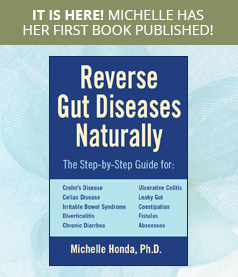

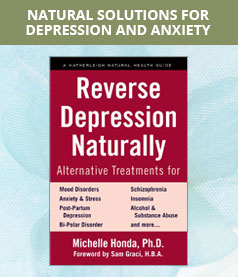
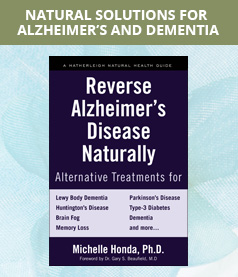
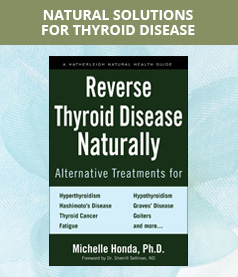

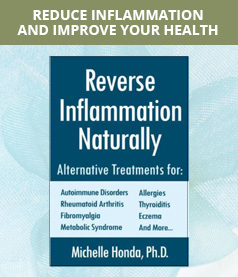
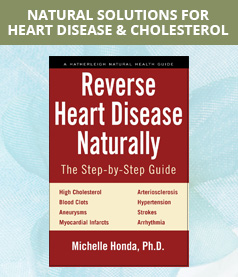
Follow Us!